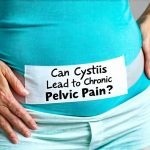Chronic bladder pain, often referred to as interstitial cystitis/bladder pain syndrome (IC/BPS), is a debilitating condition characterized by persistent discomfort, pressure, or pain in the pelvic region, frequently attributed to the bladder. Unlike a urinary tract infection which resolves with antibiotics, IC/BPS presents a chronic challenge, significantly impacting quality of life for those affected. The exact cause remains elusive, making diagnosis and treatment complex. While research continues, growing evidence suggests that hormonal imbalances may play a substantial role in the development and exacerbation of this painful condition, leading to a more nuanced understanding beyond purely urological factors.
The connection between chronic pain conditions and hormones isn’t new; many individuals report symptom fluctuations coinciding with menstrual cycles or menopause, hinting at an inherent link. For women especially, the cyclical nature of estrogen and progesterone levels can directly influence inflammatory responses and nerve sensitivity, potentially amplifying bladder pain symptoms. This has prompted researchers to investigate whether hormonal dysregulation – stemming from conditions like polycystic ovary syndrome (PCOS), thyroid disorders, or even perimenopause/menopause – could contribute to the onset or worsening of IC/BPS. Beyond estrogen and progesterone, other hormones like cortisol, DHEA, and testosterone also affect pain perception and inflammation, adding layers to this complex interplay.
Hormonal Influences on Bladder Pain Mechanisms
The pathophysiology of IC/BPS is not fully understood, but current theories implicate a breakdown in the bladder’s protective lining (urothelium), leading to increased permeability and irritation. This allows potentially harmful substances in urine to trigger inflammation and pain signals. Hormones directly impact the urothelium’s integrity and function. Estrogen, for instance, has been shown to influence urothelial cell growth and repair, as well as modulating inflammatory pathways. A deficiency in estrogen can compromise the bladder lining’s ability to protect itself, increasing vulnerability to irritation and pain. Furthermore, hormonal imbalances can affect mast cells – immune cells present in the bladder wall – causing them to release histamine and other inflammatory mediators, escalating pain signals.
The role of cortisol, often referred to as the “stress hormone,” is also significant. Chronic stress leads to persistently elevated cortisol levels which, over time, can desensitize the hypothalamic-pituitary-adrenal (HPA) axis – the body’s main stress response system. This HPA axis dysfunction can contribute to heightened pain sensitivity and a reduced ability to cope with stressors, exacerbating IC/BPS symptoms. Importantly, hormonal imbalances aren’t necessarily a direct cause of IC/BPS in all cases; rather, they can act as significant contributing factors that amplify existing vulnerabilities or accelerate disease progression.
Finally, the gut microbiome – increasingly recognized for its profound influence on overall health – is also interconnected with hormonal balance and bladder function. Hormonal fluctuations can alter the composition of the gut microbiota, impacting inflammation levels throughout the body, including the bladder. A disrupted gut microbiome (“dysbiosis”) can further contribute to systemic inflammation and potentially worsen IC/BPS symptoms.
Investigating the Link: Current Research & Clinical Observations
Research into the hormonal-IC/BPS connection is ongoing, but several studies support a plausible link. Studies have demonstrated lower estrogen levels in women with IC/BPS compared to healthy controls. Furthermore, some patients report symptom improvement with hormone replacement therapy (HRT), although this isn’t universally effective and requires careful consideration due to potential risks and side effects. Observational data consistently show a higher prevalence of IC/BPS among women experiencing significant hormonal shifts, such as during perimenopause or post-menopause.
Clinical observations also point toward a hormonal component. Many practitioners specializing in IC/BPS treatment report that patients often experience symptom flares correlating with menstrual cycles, ovulation, or periods of high stress. This anecdotal evidence reinforces the idea that hormonal fluctuations can significantly influence bladder pain perception. Some integrative approaches to IC/BPS management focus on balancing hormones alongside conventional treatments, aiming for a more holistic and personalized approach. It’s crucial to acknowledge however, that hormonal therapy is not a one-size-fits-all solution and should only be considered under the guidance of a qualified healthcare professional after thorough evaluation and individualized assessment.
Exploring Hormonal Testing & Assessment
Accurately assessing hormonal imbalances is vital for determining if they are contributing to IC/BPS symptoms. Traditional blood tests often measure hormone levels at a single point in time, which may not accurately reflect overall hormonal patterns. More comprehensive testing methods can provide a more detailed picture:
- Saliva Testing: Measures free (bioavailable) hormone levels throughout the day, providing insight into diurnal variations and fluctuations. It’s less invasive than blood tests and often preferred for assessing cortisol levels.
- Dried Urine Testing: Offers a broader assessment of hormonal metabolites over a longer period, reflecting overall hormone production and elimination. This can be useful for identifying imbalances in estrogen, progesterone, and cortisol.
- Blood Tests (Comprehensive Panels): While standard blood tests have limitations, comprehensive panels that include DHEA-S, testosterone, thyroid hormones (TSH, T4, T3), and vitamin D levels offer a more complete hormonal picture.
It’s important to work with a healthcare provider knowledgeable about IC/BPS and hormone testing to interpret the results accurately and develop an appropriate treatment plan. Self-treating based on test results is strongly discouraged. A qualified practitioner can help determine which tests are most relevant for your specific symptoms and medical history, and also consider other potential contributing factors.
The Role of Stress & Cortisol Dysregulation
Chronic stress significantly impacts hormonal balance and pain perception in individuals with IC/BPS. Prolonged activation of the HPA axis leads to sustained high cortisol levels, which can initially provide a temporary sense of energy but ultimately lead to adrenal fatigue and impaired immune function. This creates a vicious cycle where chronic pain increases stress, further dysregulating cortisol levels, and worsening symptoms.
Strategies for managing stress are therefore crucial components of IC/BPS management:
1. Mindfulness-Based Practices: Techniques like meditation, yoga, and deep breathing exercises can help calm the nervous system and reduce cortisol production.
2. Regular Exercise: Physical activity releases endorphins, natural mood boosters that also help regulate cortisol levels.
3. Adequate Sleep: Prioritizing 7-9 hours of quality sleep each night is essential for restoring hormonal balance and reducing stress.
4. Social Support: Connecting with others can provide emotional support and reduce feelings of isolation which contribute to chronic stress.
Addressing Gut Health & Hormonal Balance
The gut microbiome plays a pivotal role in hormone regulation and immune function, both impacted by IC/BPS. An imbalanced gut microbiota (“dysbiosis”) can disrupt estrogen metabolism (the “estrobolome”), leading to hormonal imbalances. Furthermore, dysbiosis contributes to systemic inflammation which exacerbates bladder pain symptoms.
Strategies for improving gut health include:
* Dietary Changes: Emphasize a whole-food diet rich in fiber, fruits, and vegetables while minimizing processed foods, sugar, and inflammatory fats.
* Probiotic Supplementation: Introducing beneficial bacteria through probiotic supplements or fermented foods can help restore gut balance. Consult with your healthcare provider before starting any new supplement.
* Prebiotic Foods: Prebiotics feed the good bacteria in the gut, supporting a healthy microbiome. Examples include garlic, onions, asparagus and bananas.
* Stress Management: As mentioned earlier, managing stress is crucial for both hormonal balance and gut health.
It’s important to remember that IC/BPS is a complex condition with multifaceted causes. While hormonal imbalances may not be the sole factor in every case, recognizing their potential role can lead to more targeted and effective treatment strategies. A holistic approach encompassing lifestyle modifications, hormone testing (when appropriate), stress management techniques, and gut health optimization—alongside conventional medical care—offers the best chance for improving symptoms and enhancing quality of life for individuals living with chronic bladder pain. If you are experiencing persistent discomfort, it’s essential to determine is pain during urination linked to cancer. Additionally, understanding what is a bladder diary and how to use it can be invaluable for tracking symptoms. For those struggling with nighttime discomfort, learning what to do if bladder pain interrupts sleep may provide much needed relief.





















